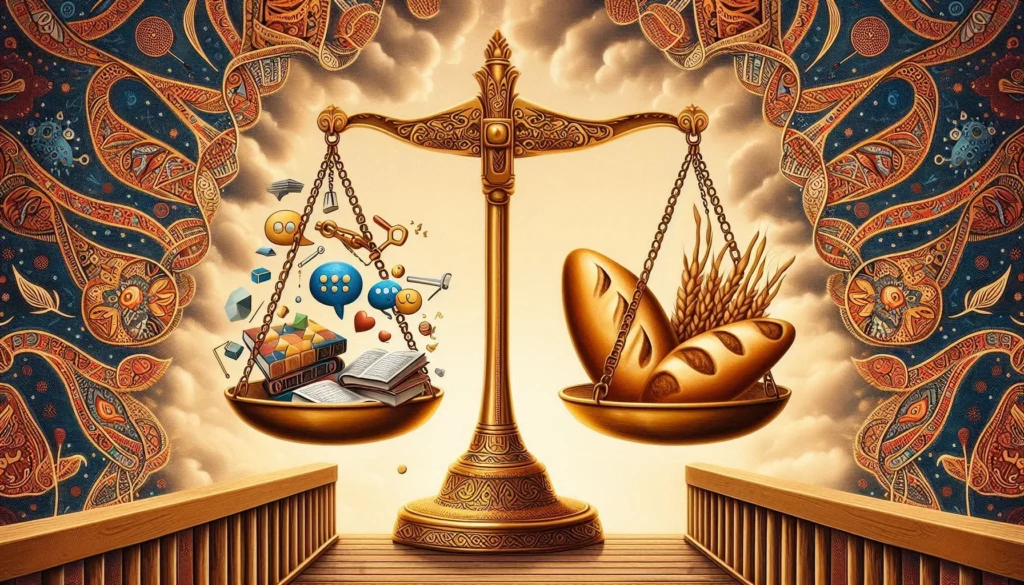Introduction
Spirituality and politics are often viewed as distinct entities, yet they are deeply interconnected, especially in diverse societies like India. Spirituality in politics fosters ethical leadership, transparency, and public welfare. When politicians embrace a higher spiritual perspective, governance becomes a means to uplift society rather than a pursuit of power. In this guide, we explore how spirituality-driven governance can lead to justice, unity, and progress. A government inspired by spiritual principles promotes fairness and well-being for all, ensuring policies align with universal moral values.
The Role of Spirituality in Politics
Throughout history, spirituality has shaped the ethical foundations of governance. Mahatma Gandhi emphasized that public and political life should be infused with spiritual values, ensuring justice and nonviolence. He believed that what is gained through hatred and violence is short-lived, whereas love and nonviolence create lasting harmony.
In a modern context, political leadership that embraces spiritual responsibility promotes impartiality, justice, and corruption-free governance. Actor Rajinikanth echoed this sentiment, stating that spirituality transcends religious boundaries, fostering unity and fairness.
A spiritually inspired government understands the essence of serving the people, not just governing them. Leaders with a strong moral compass ensure that policies serve the greater good, rather than narrow interests. Spiritual governance emphasizes inclusivity, bringing different communities together under a shared vision of ethical progress.
Balancing Freedom: The Spiritual Perspective

A just society requires a delicate balance between freedom of and freedom from:
• Freedom of religion, speech, and assembly ensures democratic rights.
• Freedom from hunger, poverty, illiteracy, and corruption fosters societal well-being.
While these freedoms may sometimes conflict, spirituality bridges the gap, ensuring that personal liberties do not become self-serving and that social restrictions do not become oppressive. A spiritually conscious leader prioritizes both individual rights and collective welfare. Ethical leadership ensures that freedoms do not lead to chaos but instead contribute to social harmony.
Governments that embrace spiritual values craft policies that foster economic and social justice. This balance leads to a governance model that ensures both material prosperity and moral integrity. Societies that integrate spirituality into their governance structures create a stable foundation for long-term peace and development.
Good Governance Through Spirituality
Effective governance is built on five key principles:
- Responsibility – Leaders must act with integrity and prioritize the public good.
- Accountability – Transparent decision-making ensures trust in leadership.
- Awareness – Understanding diverse cultural and spiritual values fosters inclusivity.
- Impartiality – Policies should be fair, unbiased, and free from discrimination.
- Transparency – Open governance prevents corruption and builds public confidence.
A spiritually inclined government nurtures these principles, creating policies that serve all citizens, regardless of caste, religion, or economic status. By incorporating ethical decision-making into the political framework, nations can create sustainable and progressive policies that reflect the values of justice, fairness, and moral responsibility.
When political leaders lead with spiritual awareness, they cultivate a governance model based on truth, selflessness, and a genuine commitment to the well-being of the people. Such leadership leads to an administrative system that empowers rather than exploits and uplifts rather than divides.
The Need for Spiritual Renewal in Governance
The world faces increasing divisions due to political polarization and religious intolerance. Now, more than ever, spiritual renewal is essential in politics. This does not mean merging religion with governance but rather integrating universal spiritual values—love, peace, and justice—into policymaking.
Leaders who recognize the importance of spiritual values in decision-making are more likely to implement policies that prioritize fairness, inclusivity, and social harmony. A government that upholds ethical values is less prone to corruption, ensuring that public service remains a noble mission rather than a means for personal gain.

Conclusion: Reaffirming Communal Harmony
The principles of peace and brotherhood must guide political leadership. The International Day of Human Fraternity (February 4) serves as a reminder of our shared humanity. By embracing spirituality in governance, we can create a just, transparent, and harmonious society where ethical leadership prevails. A society rooted in spiritual values fosters long-term stability, peace, and prosperity for future generations.
Spirituality in politics is not about imposing religious doctrines but about recognizing our shared human values—compassion, justice, and respect for all. By nurturing these values within governance, societies can move towards a more just and balanced future where leaders serve the people with genuine integrity and selflessness.
Call to Action
How do you think spirituality can improve modern politics? Share your thoughts in the comments below and join the conversation on fostering ethical governance!


